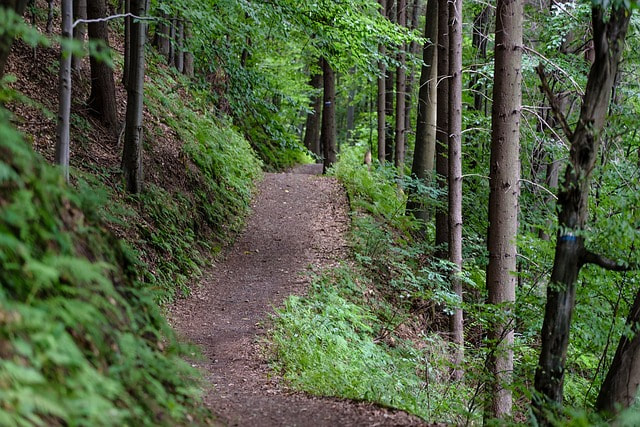
"I would rather fish any day than go to heaven." Cornelia "Fly Rod" Crosby (1854 - 1946) First Registered Maine Guide . THE ANGLER'S SONG From the river's plashy bank, Where the sedge grows green and rank, And the twisted woodbine springs, Upward speeds the morning lark To its silver cloud - and hark! On his way the woodman sings. On the dim and misty lakes Gloriously the morning breaks, And the eagle's on his cloud: - Whilst the wind, with sighing, wooes To its arms the chaste cold ooze, And the rustling reeds pipe loud. Where the embracing ivy holds Close the hoar elm in its folds, In the meadow's fenny land, And the winding river sweeps Through its shallows and still deeps, - Silent with my rod I stand. But when sultry suns are high Underneath the oak I lie As it shades the water's edge, And I mark my line, away In the wheeling eddy, play, Tangling with the river sedge. When the eye of evening looks On green woods and winding brooks, And the wind sighs o'er the lea, - Woods and streams, - I leave you then, While the shadow in the glen Lengthens by the greenwood tree. Henry Wadsworth Longfellow (1807-1882) Maine Poet 
THE ROAD NOT TAKEN Two roads diverged in a yellow wood, And sorry I could not travel both And be one traveler, long I stood And looked down one as far as I could To where it bent in the undergrowth; Then took the other, as just as fair, And having perhaps the better claim Because it was grassy and wanted wear, Though as for that the passing there Had worn them really about the same, And both that morning equally lay In leaves no step had trodden black. Oh, I kept the first for another day! Yet knowing how way leads on to way I doubted if I should ever come back. I shall be telling this with a sigh Somewhere ages and ages hence: Two roads diverged in a wood, and I, I took the one less traveled by, And that has made all the difference. Robert Frost (1874-1963) New Hampshire Poet 
Wesley There's an old saying in Maine When someone has Overstayed their welcome that goes: "Here's your hat-- What's your hurry?" That's certainly not the case With you, Wesley It has been far too many years Since we have seen Your shy grin and quiet ways You were Patten's own And are deeply missed So when the roll is called up Yonder When we too, Pass the Pearly Gates And see what you knew all along That Heaven really is And always was. . . A good day of fishing In a deep blue lake in Maine Right up there in God's Country Well, then, my friend, we'll know Why you had to leave so soon. |

It's beautiful up there in the deep Northern Maine woods.
God's Country, they call it, with good reason. Ancient glaciers carved the land, the hollows now filled with freshwater ponds covered in a hovering mist of morning haze, brightened by the call of the loon. Deep dense woods, where earth's first people roamed since the dawn of time. Just listen to the chickadee cry and the wind singing through the trees. It's tough unforgiving country, too, as any of the locals will tell you. If you venture into the Northern Maine woods, better know what you're doing and exactly where you're going, or you may not come back alive. It's always good to have a seasoned veteran of the woods to lead the way, to break the trail, to show you where the best fishing and hunting is, and they call that person a Maine Guide. Wesley Porter was born in Patten, Maine, by trade a potato farmer and inspector, but from his love of his wilderness hunting and fishing, a Maine Guide. You'll usually see the words Maine Guide capitalized, because it takes a special combination of skill, endurance and knowledge of the lay and the way of the land to become one. Wesley Porter was doing what he loved best, guiding three Massachusetts fisherman to Webster Lake to catch their bounty. Wesley was an experienced hunter, trapper and fisherman. But the Maine woods are a good place to hide, too, if you're running from your life or running from the law. There was a man from Canada, name of Alphonse Morencey, running from conscription, who came to the Maine North woods, near Webster Lake in Piscataquis County, trying to stay alive by his own wily ways until one day in June of 1943. Then there's fate, a chance meeting in the woods between a fisherman and a fugitive, two people of different mindsets, with different intent. Wesley wanted to fish, and Morencey wanted food. On June 3, 1943, as he stood outside a fishing cabin at Webster Lake, Wesley Porter was shot in the head and died six hours later. In the days that followed, the largest manhunt the State of Maine had ever seen at that time took place, resulting in the capture and death of Alphonse Morencey. In the early days of the search, before a likely suspect was identified, the murderer was dubbed "The Phantom of the Allagash" due to his elusive actions. Two autopsies were conducted on Wesley Porter's body. The first, done the day after his death, determined that his wound was deliberate. Due to evidence found at the scene of Wesley's death and at other locations, Wesley's body was later exhumed by order of the State Attorney General, a second autopsy was conducted to compare wounds against ballistic evidence, and the second state medical examiner determined that the wound causing Wesley Porter's death was deliberately caused by a shotgun. When Morencey was captured, he said he remembered firing over the head of someone, to scare them off so he could get something to eat, because he was hungry. (NOTE: the spelling of Morencey's name varies according to different articles, so you may see it spelled differently on other pages of this site, i.e., Morence, Morance, Morencey, Maurence. It is believed his name was spelled Morencé, with an accent mark over the last vowel, which in French has the long "e" sound, hence, Morencey. Back in 1943, American typewriters and police teletype machines were not equipped with the French "é" accent character. 
The story of Wesley's death and Morencey's capture is legend in Penobscot, Aroostook and Piscataquis counties in Maine, not just because of a horrific murder. It's a compelling story of the determination of several local volunteer searchers and Maine law enforcement agencies mounting a search in nearly ten million acres of the most heavily wooded areas of earth, and the incredible resources they marshaled to do that.
It's a story told to families generations after Wesley. Almost every child growing up in Patten and Mount Chase, ME. has heard what happened to Wesley Porter, and they've gone to school with Wesley's children and some have married into Wesley's family. Grizzled Maine Guides still speak of Wesley Porter, and will tell you their opinion of Morencey, in no uncertain terms, "Well, you just don't shoot a man in the head three times when he's unarmed and not lookin', then run off like a coward and call it an accident." But Wesley's grandchildren and distant relatives have never heard the full accounting of what happened in 1943. When the world was raging with World War II in Europe and the Pacific,and with two of Wesley's sons soldiers in that war, Maine was engaged in a full-out, no-holds-barred manhunt for the killer who took Wesley Porter's life. It is, as they say in the parlance of the north woods and in a drawn-out downeast accent, a good yarn (if you're from Maine, that's pronounced "yahn"). But a yarn is wrapped in fable, and this is a true story. So, seventy years after it happened, a good story deserves retelling. The Murder of Wesley Porter and the search for his killer has been the subject of five books by Maine authors and four magazine articles. See links above for details. NEXT: MURDER BELOW: a Google Earth picture of the Webster Lake area in Piscataquis County, Maine. If it looks remote and wild now, it was even more so back in 1943. The Geocode coordinates for Webster Lake are LAT 46.1559759 and LON 46.1558759 |
Wesley Porter
Maine Guide
Patten, ME.
June 20, 1897 -June 4, 1943
Tribute Website for Wesley Porter
His family and his decendants

